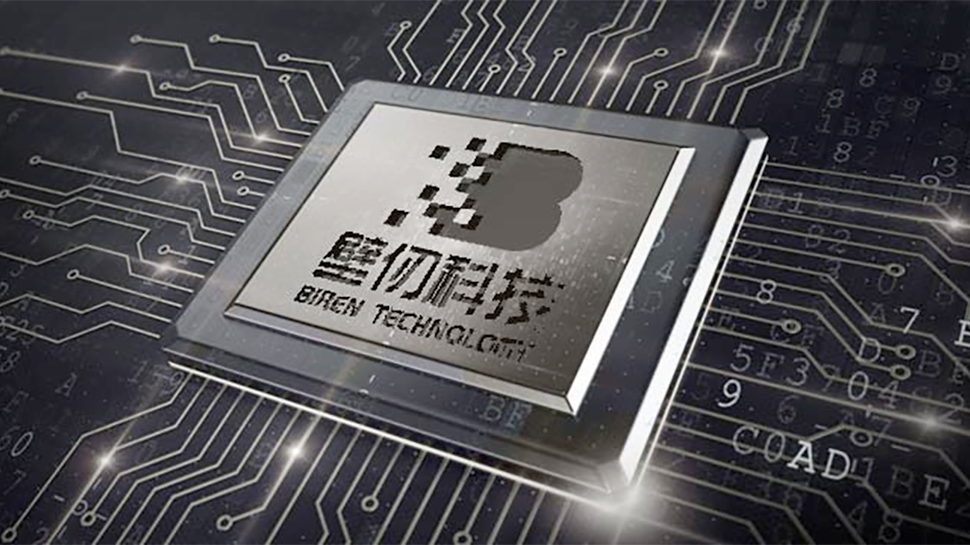- Nvidia is giving its newest AI chips to small cloud providers that compete with major players like Amazon Web Services and Google.
- The company is also asking these small cloud providers for the names of their customers, allowing Nvidia to potentially favor certain AI startups.
- This move highlights Nvidia's dominance as a major supplier of graphics processing units (GPUs) for AI, which are currently in high demand.
- The scarcity of GPUs has led to increased competition among cloud providers and Nvidia's actions could further solidify its position in the market.
- This move by Nvidia raises questions about fairness and competition in the AI industry.
The main topic of the article is the strain on cloud providers due to the increased demand for AI chips. The key points are:
1. Amazon Web Services, Microsoft, Google, and Oracle are limiting the availability of server chips for AI-powered software due to high demand.
2. Startups like CoreWeave, a GPU-focused cloud compute provider, are also feeling the pressure and have secured $2.3 billion in debt financing.
3. CoreWeave plans to use the funds to purchase hardware, meet client contracts, and expand its data center capacity.
4. CoreWeave initially focused on cryptocurrency applications but has pivoted to general-purpose computing and generative AI technologies.
5. CoreWeave provides access to Nvidia GPUs in the cloud for AI, machine learning, visual effects, and rendering.
6. The cloud infrastructure market has seen consolidation, but smaller players like CoreWeave can still succeed.
7. The demand for generative AI has led to significant investment in specialized GPU cloud infrastructure.
8. CoreWeave offers an accelerator program and plans to continue hiring throughout the year.
China is placing orders for $5 billion worth of Nvidia chips, despite the fact that the chips have been deliberately limited in their capabilities for the Chinese market, indicating that the weakened processors are still more powerful than the alternatives available.
Nvidia warns that stronger US restrictions on chip sales to China will harm American companies in the long term, while also acknowledging that stricter rules wouldn't have an immediate material impact on their finances.
Nvidia's CEO, Jensen Huang, predicts that upgrading data centers for AI, which includes the cost of expensive GPUs, will amount to $1 trillion over the next 4 years, with cloud providers like Amazon, Google, Microsoft, and Meta expected to shoulder a significant portion of this bill.
Nvidia's dominance in the AI chip market and its reliance on a single manufacturer, TSMC, poses potential risks due to manufacturing disruptions and geopolitical tensions with Taiwan.
China is aiming to produce its own high-bandwidth memory (HBM) chips for AI processors, despite facing challenges from US sanctions and the technological lead of global leaders such as SK Hynix, Samsung, and Micron. ChangXin Memory Technologies (CXMT) is considered China's best chance for producing HBMs, but it may take up to four years to bring products to market.
The U.S. has expanded export restrictions of Nvidia artificial-intelligence chips beyond China to other regions, including some countries in the Middle East, citing national security concerns.
Nvidia's processors could be used as a leverage for the US to impose its regulations on AI globally, according to Mustafa Suleyman, co-founder of DeepMind and Inflection AI. However, Washington is lagging behind Europe and China in terms of AI regulation.
The ongoing shortage of compute GPUs for AI and HPC applications is caused by constraints in chip-on-wafer-on-substrate packaging capacity, which is expected to persist for 18 months due to rising demand for generative AI applications and slow expansion of CoWoS capacity at TSMC.
Nvidia's data center graphics cards continue to experience high demand, leading to record-high shares; however, investors should be aware of the risk of AI chip supply shortages. Microsoft and Amazon are alternative options for investors due to their growth potential in AI and other sectors.
The CEO of semiconductor firm Graphcore believes that their advanced AI-ready processors, called IPUs, can emerge as a viable alternative to Nvidia's GPUs, which are currently facing shortages amidst high demand for AI development.
The server market is experiencing a shift towards GPUs, particularly for AI processing work, leading to a decline in server shipments but an increase in average prices; however, this investment in GPU systems has raised concerns about sustainability and carbon emissions.
Nvidia CEO Jensen Huang visited India to explore the country's potential as a source of AI talent, a site for chip production, and a market for Nvidia's products, as the US restricts exports of high-end chips to China. India's ambitions to boost electronics manufacturing and develop AI capabilities align with Nvidia's interests, making it a strategic market for the company. However, India still faces challenges in becoming an AI hub, such as the lack of exascale compute capacity and sufficient AI talent.
Intel's AI chips designed for Chinese clients are experiencing high demand as Chinese companies rush to improve their capabilities in ChatGPT-like technology, leading to increased orders from Intel's supplier TSMC and prompting Intel to place more orders; the demand for AI chips in China has surged due to the race by Chinese tech firms to build their own large language models (LLMs), but US export curbs have restricted China's access to advanced chips, creating a black market for smuggled chips.
